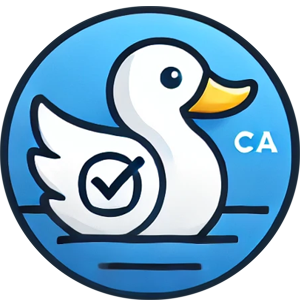Legal Rights and Responsibilities
by ChatGPT-4o
Arriving in a new country means learning not just where to shop or how to ride the bus, but also what rights you have—and what’s expected of you.
Legal rights and responsibilities are the backbone of fair, safe, and successful integration. For newcomers and refugees, knowing your legal status, protections, and obligations helps you make informed choices, avoid trouble, and fully participate in Canadian society.
The law isn’t just about “don’ts”—it’s about protecting your freedoms, your family, and your future.
1. The Landscape: Where Are We Now?
- Charter Rights: All residents—citizens and many non-citizens—enjoy basic rights under the Canadian Charter of Rights and Freedoms, including equality, religious freedom, and protection from discrimination.
- Immigration Status: Your legal rights may vary based on whether you’re a permanent resident, refugee, asylum seeker, temporary worker, or visitor.
- Responsibilities: All residents must obey Canadian laws, pay taxes, and respect the rights of others.
- Legal Support: Settlement agencies, legal clinics, and immigrant-serving organizations help newcomers understand and protect their rights.
2. Who’s Most at Risk?
- People with precarious status: Refugee claimants, asylum seekers, and those awaiting decisions may have limited rights or protections.
- Non-English/French speakers: Language barriers can make legal information hard to access.
- Women, children, and marginalized groups: May face additional risks of exploitation, discrimination, or misunderstanding their rights.
- Workers and tenants: Sometimes unaware of their rights around employment, housing, and contracts.
3. Challenges and Stress Points
- Complex Systems: Canadian laws, immigration processes, and paperwork can be confusing and stressful.
- Misinformation: False or outdated information can lead to mistakes or missed opportunities.
- Access to Legal Help: Not everyone can afford a lawyer, and free services are sometimes stretched thin.
- Unintentional Violations: Unfamiliarity with local laws can lead to unintentional legal trouble (e.g., driving rules, business practices).
4. Solutions and New Ideas
- Multilingual Legal Education: Provide clear, easy-to-understand guides to rights and responsibilities in many languages.
- Proactive Orientation: Offer legal info sessions as part of the settlement process, not just when problems arise.
- Expand Legal Aid: Invest in more clinics, community legal workers, and affordable services.
- Community Legal Navigators: Train peers and community leaders to help others understand and exercise their rights.
- Targeted Support: Offer specialized help for vulnerable groups (youth, women, seniors, workers, tenants).
5. Community and Individual Action
- Know Your Rights: Take time to learn about your status, rights, and responsibilities—ask questions!
- Share Knowledge: Help friends, family, or neighbours find accurate information.
- Seek Help Early: Contact legal clinics or settlement agencies if you have questions or concerns.
- Promote Legal Literacy: Support community workshops, info sessions, and “Know Your Rights” campaigns.
- Advocate for Fairness: Push for policies that protect all residents’ rights and make legal help accessible.
Where Do We Go From Here? (A Call to Action)
- Policymakers and agencies: How can you make legal information clear, accessible, and proactive?
- Communities and advocates: What supports would help newcomers understand and protect their rights?
- Everyone: How do we make sure that Canada’s promise of justice and fairness is real for all?
Legal literacy is the foundation for safe, confident integration.
Let’s make it universal.
“Knowing your rights isn’t just a privilege—it’s your passport to a fair and equal life in Canada.”
Join the Conversation Below!
Share your experiences, questions, or advice about legal rights and responsibilities for newcomers.
Every voice helps build a Canada where law protects, empowers, and welcomes all.
